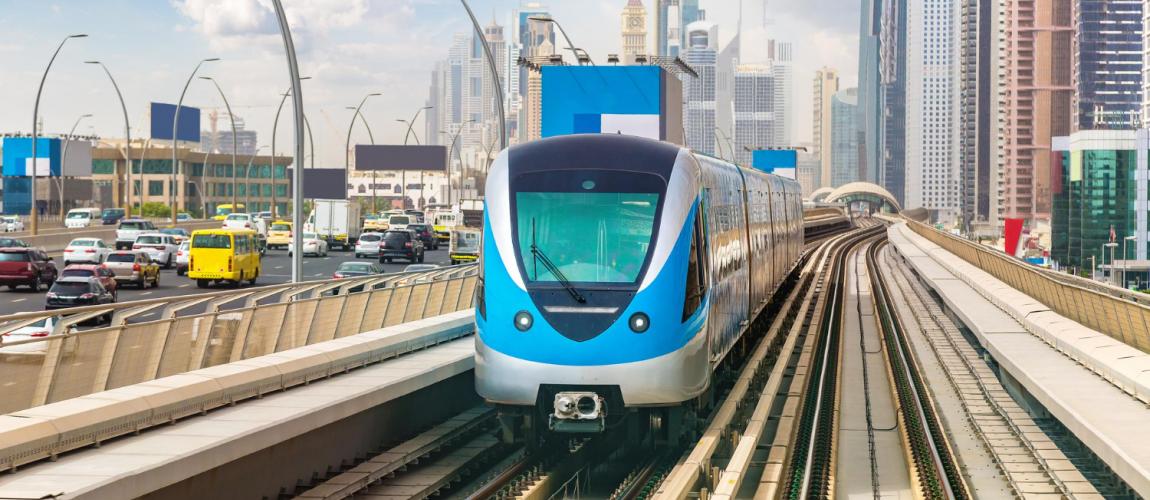Yongin Everline Light Rail Transit, Seoul, Republic of Korea

Photo Credit: Image by Freepik
On this page: Challenging Case: Yongin Everline Light Rail Transit, Seoul, Republic of Korea. Find more at the Municipal Public-Private Partnership Framework - Project Summaries section for brief summaries of around 100 projects from around the world, examples of successes and challenges, as well as innovative ideas on solutions, or visit the Guidelines to Implementing Asset Recycling Transactions Section Overview and Content Outline, or download Full Version of the Report.
Project Summary: Background Anticipating an increase in travel demand based on Yongin City’s development plans, in 1996 Yongin City proposed a PPP to establish the Yongin Everline Light Rail Transit (LRT). However, the project had to be deferred to 2001 due to insufficient bids received. The PPP project was re-announced in 2001 and received only one project proposal submission in 2002 from a consortium formed by Daelim Industrial Co., Ltd. and Bombardier Transportation. The Daelim-led consortium was selected as the preferred bidder in 2002 and subsequently established Yongin Rapid Transit Co. Ltd. Project Structure The PPP agreement was signed in 2004 between Yongin City and Yongin Rapid Transit Co. Ltd. The consortium was awarded a 30-year concession to design, construct, and operate the Yongin LRT, which was to span about 18 km and entailed an estimated investment cost of KRW 728 billion (USD 646 million). The agreement stipulated that ownership of the LRT would belong to Yongin City. Yongin City would provide a 90 percent of minimum revenue guarantee (MRG) over the 30-year operation period. At the same time, the consortium was required to provide additional equity (subject to a cap) in the event of any cost overruns. Lessons Learned The project started construction in 2005 and was completed in 2009. In the intervening period, however, a research institute determined that the estimated passenger volume would reach only 32,000 passengers per day, due primarily to competition from other public transport options that had been built or improved during the LRT’s construction period. This figure was far below the 2001 estimate of 140,000. To satisfy its 90 percent MRG, this shortfall in demand would cost Yongin City an estimated KRW 2.5 trillion (USD 2.2 billion). To avoid this financial burden, Yongin City denied the construction completion approval, a precondition to the consortium’s receipt of construction payments. Instead, it proposed to move forward with operating the line without the completion approval. This led to the cancellation of the implementation agreement and an escalation of the dispute to international arbitration in 2011. In 2012, an international arbitration court ordered Yongin City to pay a total of KRW 779 billion (USD 692 million) to Yongin Rapid Transit Co., Ltd. The amount was to compensate for the project costs accrued before the cancellation of implementation agreement and the losses arising from opportunity costs. After the termination of the original agreement, both Yongin City and the Yongin Light Rail Co., Ltd. renegotiated a new 30-year contract, which was subsequently signed in mid-2012. In the new deal, the MRG provision was removed, but the city was required to pay about USD 20 million per year in operation and management fees, in addition to assuming responsibility for the debt associated with the LRT system. In April 2013, Yongin Everline officially opened but attracted only about 9,400 users per day in its first month of operation, and around 10,000 people per day subsequently. This ridership is still lower than the significantly reduced 2011 estimate of 32,000 per day. If this continues, the LRT is expected to cost taxpayers around USD 2.7 billion over the next 30 years, including maintenance. In September 2014, the situation improved after implementing the Metropolitan Unity Fare system, which integrated the fare with surrounding transit systems and improved station-to-station connection. After the integration, the ridership level of the Yongin Everline tripled in less than six months to an average of 30,000 passengers per day, close to meeting the most recent demand forecast of 32,000. The case highlights the following: The danger of optimism bias, particularly in a generally unprofitable project like an LRT, as overestimation can present significant fiscal risks for the contracting authority in the long run. The importance of investing in qualified, independent transaction advisors through transparent and competitive procurement processes. Reports stated that the Yongin LRT case was surrounded by corruption allegations, especially during the procurement of the project advisors and private sector partner. Being open to renegotiation. In the event of conflict or crisis, both parties should be open to renegotiation to seek the best available solution. Although the solution may not wholly reverse the damage that has already occurred, it can reduce or prevent further damages from happening. Avoid redundancy in public transportation. The case highlighted the importance of looking at urban transport in a more integrated manner to account for competition from other modes of transportation along the same corridor.7 Footnote 1: Sources: https:// www.kdevelopedia. org/download. do?timeFile=/mnt/idas/ asset/2016/05/02/DOC/ PDF/042016050201443 90077279.pdf&origin FileName=KSP% 2011%20Korea% C2%B4s%20 Railway%20PPP%20 Projects.pdf, accessed 17 February 2019; https://m.worldservices group.com/article. aspx?id=2097, accessed 17 February 2019; http:// koreajoongangdaily. joins.com/news/ article/article. aspx?aid=2972459, accessed 17 February 2019
This is a new section of the PPPLRC website and is currently in draft form. Your feedback is welcome: If you would like to comment on the content of this section of the website or if you have suggestions for links or materials that could be included please contact us at ppp@worldbank.org.
To find more, visit the The Municipal Public-Private Partnership Framework - Project Summaries section, the Guidelines to Implementing Asset Recycling Transactions Section Overview and Content Outline, or download Full Version of the Report.
Updated: March 8, 2024